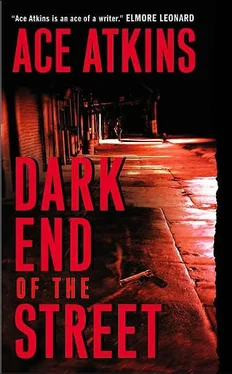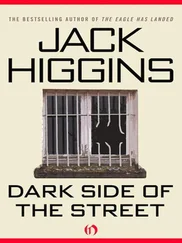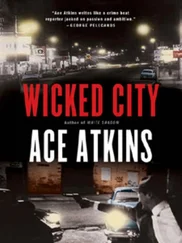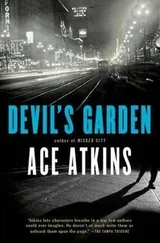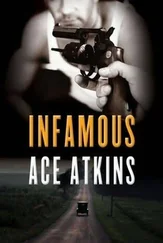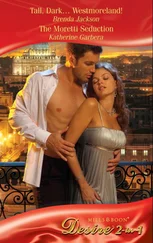JoJo also introduced me into the network of old players and gave me an access into the blues that I would’ve never known. And during a few instances where I’d stumbled a little too far into the life of a blues player, they’d yanked my ass out of self-pity and Jack Daniels and made sure they set me straight.
I’m a curious person, I thought, loosening the last nut off the tire and sliding off the flat, and I believed I’d found out everything about the Jacksons. After all, I was an oral historian and prided myself as a listener. But although I knew the connection, Loretta seldom spoke about her brother Clyde.
A few times, especially some research I was doing into the connection between Civil Rights and ‘sixties soul, I asked a few questions about her days in Memphis and her brother being one of Southern soul’s headliners, among Otis Redding, Percy Sledge, and Wilson Pickett.
But she always found a way to change the subject. And I didn’t want to push. After what I’d read about Clyde going crazy and taking to the street, I knew it only caused her pain.
Before I left New Orleans, I’d spent almost all night in the archives searching for articles about Clyde. I found a lot about the music – with a cursory mention of him – about how soul began to find roots after Ray Charles matched gospel structure with secular lyrics. Basically how oh, baby replaced oh, Lord. This was the time of Sam Cooke and Solomon Burke, an exciting period in black music that replaced blues in popular culture. But Southern soul was something else entirely. This was not Motown. Motown was black music for white teens. Southern soul, Memphis soul, was black music for blacks. This was grit. Funky, marinated, and deep-fried in gospel roots with the intensity of a church revival. Although he sang mainly about love, Otis Redding wasn’t far removed from a preacher. Wilson Pickett was a shouter who could’ve been telling the world about Jesus, but instead chose “Mustang Sally.”
I loved the music. It was Memphis.
But most people, even feverish fans, didn’t know Clyde. Still he managed to be a cult figure in Britain and some critics believed he was the best soul singer who ever lived. Desperate. Almost operatic. One critic said, “Clyde sang sad songs not like his life depended on them, but like what his life depended on was gone and these songs were what was left.”
It was pretty close to the truth. Just as James was getting national attention, his haunting version of “Dark End of the Street” topping the charts, James started suffering from some deep mental problems. His wife and a member of his band had been killed in south Memphis, and in the time that followed, articles said James had suffered more emotional problems. Sometimes he even climbed onto the roof of the old movie theater that served as a recording studio and dared anyone to pull him down.
I read that there were rumors James ended up in a mental institution and that his new record company tried to keep it quiet. He reappeared briefly in the early ‘seventies and did an unreleased album for Willie Mitchell at Hi. Then he was gone again. Some say a prison in Florida. Others say they saw him singing in the early ‘eighties in Germany.
About the best thing ever written on James was in a four-year-old issue of a British music magazine called Mojo. The writer threw out a lot of theories from James’s contemporaries about what happened. The accepted story was that he killed himself about a decade ago. Broke. Forgotten. The man who could’ve been the next Otis, still a shadow.
I replaced the tire and tossed the dirty flat and oily jack into the back of the truck. No cars passed. The cotton stretched all around me in silence.
I started the truck and headed north to Memphis.
I could do this quickly. No bars this time. No jukes were needed to find the answers. I would treat this like an academic exercise and return back to NOLA.
That’s what I told myself as I saw the loose outline of Memphis just over the Tennessee border, already tasting a sandwich from Payne’s and a cold forty on Beale. My heart began to pound in my chest like a child first seeing the rides of an amusement park form in the distance.
BY 2:15 A.M…, I was dancing with the largest woman I’d ever seen in my life. She had double-wide hips, ham-sized arms, and breasts the size of watermelons. Right in the middle of Wild Bill’s Lounge, she held me close to her chest, shakin’ her big ass as the band tore into a nasty, up-tempo version of the Johnnie Taylor classic, “Who’s Makin’ Love.” The singer was about as large as my dance partner, in a tailored pin-striped suit and Jheri Curl hair, preachin’ the gospel of Memphis soul. Driving drum beat, that spooky ‘sixties organ, almost country and western guitar, and a small horn section punctuating every emotion. The singer stopped in the middle of the song, drum and guitar carrying on the rhythm, bragging to a woman in a plastic snakeskin coat, “Ain’t nothin’ short on me but my mustache.”
Wild Bill’s was a straight shot of a bar with long tables where everyone smashed together commune-style, a place where three dollars and fifty cents would get you a forty ounce and a clean glass. The room was narrow, painted orange, and decorated with Christmas lights, Polaroids of drunken patrons, and posters of black women in bikinis.
A juke house usually meant an old clapboard shack or storefront in some tired Mississippi town. But Wild Bill’s lived in a strip mall occupied by a dry cleaner, a deli, and three beauty shops. One offered no-lye relaxers and body weaves.
I seriously didn’t come to party or dance or act like a complete fool. Actually, I had just been sipping on the last of my forty and working on a plate of spicy chicken wings when she’d pulled me out onto the floor. Soon I was bumping, shaking, and strutting at her side. Didn’t want to offend anyone.
I even tried to move with her, but she kept on bumping me with her butt and about knocking me out on the street. So I planted my boots hard to the floor and tried to hold my ground, even smiling a bit when the band finished out the tune.
Felt like Travolta when he stayed on the bull in Urban Cowboy.
But as I began to walk away to my beer and wings, the band took it down a notch with a slow ballad. The woman grabbed my hands, locked them around her waist, and took me for a slow ride around the small dance floor.
She twirled me all around – my boots barely skimming the floor – and I felt like something stuffed with sawdust that you’d win at a county fair. I finally returned to my seat, chewed the remainder of meat off the last wing, and drank in the whole scene.
She watched me from the other side of the room and sent me another beer. I nodded at her, careful not to get too close. She looked like she wanted to keep me as a pet.
All around me, people were passing about bottles of Canadian whiskey, screw-topped bottles of champagne, and more quarts of beer. They sweated into plastic hotel ice buckets, hooted with laughter, and unwound from the hard week.
Besides the rhythm guitar player, I was the only white boy in the house.
I took a sip of warm beer and watched the man work his guitar. He was skinny and kept the kind of beard you’d expect to find on a character from the New Testament. Wore a T-shirt advertising Atlanta blues mecca Blind Willie’s, Wranglers faded almost white, and Birkenstocks.
Man’s name was Cleve Mack and thirty years ago he’d created the nerve center for some of the greatest soul music ever recorded. Always worked that way. Didn’t matter if it was Stax, Fame Studios in Muscle Shoals, or Bluff City. The greatest soul music was a blend of white and black artists, a pure Memphis melting pot of country, gospel, and blues.
Читать дальше
